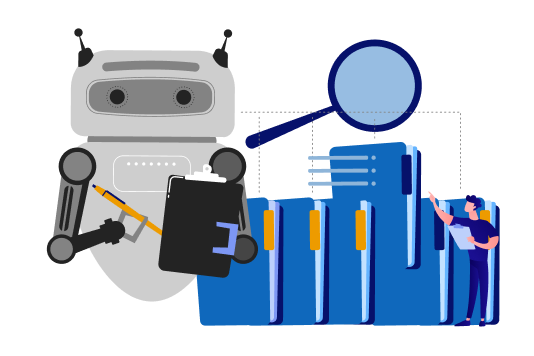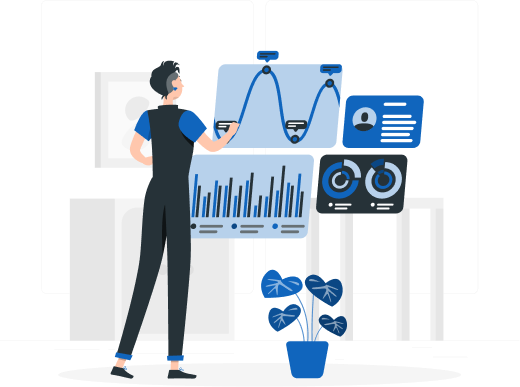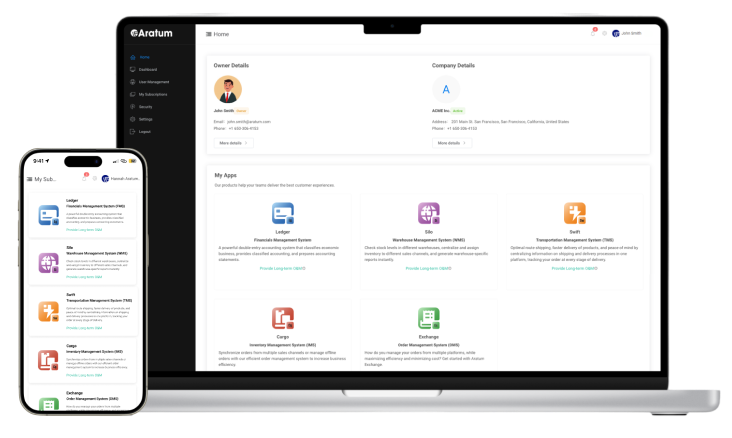Implementing a smart and advanced management strategy is necessary in the fast-paced world of supply chains.
Internet of Things (IoT) devices such as RFID, industrial sensors, trackers, monitors, etc., are the assistants for data analytics, automation, forecasting, and other processes that ensure a streamlined supply chain.
Aratum utilizes IoT to bring you advanced technologies for a robust, resilient, and profitable supply chain business.
Connectivity
Sensing and Data Collection
Remote Monitoring and Control
Automation and Intelligence
Interoperability
SKALABILITAS
Security and Privacy
Real-time Data Processing
Analytics and Insights
IoT devices are equipped with sensors and connectivity features (like Wi-Fi, Bluetooth, or cellular) that allow them to connect to the internet and to each other.

IoT devices collect data from their surroundings using various sensors such as temperature sensors, motion sensors, cameras, etc.

IoT enables remote monitoring and control of devices and systems. Users can access and manage IoT devices from anywhere with an internet connection.

IoT devices often perform actions automatically based on predefined conditions or user preferences. They can also incorporate artificial intelligence and machine learning algorithms for data analysis and decision-making.

IoT systems often involve heterogeneous devices and technologies. Interoperability ensures that these devices can communicate and work together seamlessly.

IoT systems can scale from a few devices to millions of devices without significant changes to the underlying infrastructure.

Given the sensitive nature of the data collected and the potential impact of security breaches, IoT systems need robust security measures to protect data and privacy.

IoT systems often require real-time or near-real-time data processing to respond quickly to changing conditions or trigger actions based on incoming data.

IoT generates vast amounts of data. Analytics tools can extract valuable insights from this data, enabling businesses to make informed decisions and optimize operations.

IoT-enabled wearable devices for remote patient monitoring and telemedicine services.
Smart shelves with IoT sensors track inventory levels, reduce stockouts, and enhance in-store shopping experiences.
Temperature and humidity sensors in transit monitor the conditions of pharmaceutical products in real-time and ensure compliance with storage regulations.
IoT-based package tracking and delivery management systems provide real-time updates to customers and optimize delivery routes for efficiency.
IoT-enabled fleet management systems provide real-time vehicle tracking, route optimization, and predictive maintenance to improve operational efficiency and reduce costs.
IoT temperature monitoring devices in refrigerated containers maintain the integrity of perishable goods during transportation and storage.
IoT-enabled asset tracking for monitoring high-value assets, such as cash shipments and ATMs, to improve security and optimize logistics.
IoT-enabled smart city initiates the improvement of public services, traffic management, waste management, and environmental monitoring to enhance quality of life and sustainability.
IoT sensors on machinery and equipment can be used for predictive maintenance, production optimization, and quality control to minimize downtime and defects.
IoT-based security solutions monitor and protect networks, endpoints, and data against cyber threats and breaches.
IoT sensors monitor environmental conditions and detect leaks or hazardous materials spills in real-time to ensure safety and compliance.
IoT-enabled smart meters monitor real-time water and energy consumption, identify leaks or inefficiencies, and optimize resource usage.

More Profits
A Swedish company with a grocery store chain faced challenges with managing perishable items such as fruits, vegetables, dairy, and meats. Despite their best efforts, they struggled with maintaining optimal inventory levels to ensure product freshness and minimize waste. They also lacked proper inventory monitoring, making it difficult to anticipate demand fluctuations and prevent stockouts or overstocking.
With Aratum’s help, the company implemented the Internet of Things in its supply chain management to improve its operations.
The Internet of Things (IoT) refers to a network of interconnected devices embedded with sensors, software, and other technologies that enable them to collect and exchange data over the Internet.
IoT devices collect data from their surroundings using sensors and transmit it to a central system or cloud platform via the Internet, where it is processed, analyzed, and used to trigger actions or provide insights.
IoT devices include smart thermostats, wearable fitness trackers, connected home appliances, industrial sensors, smart city infrastructure (traffic lights and parking meters), and healthcare monitoring devices.
IoT offers numerous benefits, including improved efficiency, enhanced productivity, cost savings, better decision-making through data insights, automation of tasks, and the ability to monitor and control devices remotely.
Security is a significant concern in IoT due to the large number of connected devices and the potential vulnerabilities they may introduce. However, with proper security measures such as encryption, authentication, and regular updates, IoT systems can be more secure.
Implementing IoT can be challenging, as it involves interoperability issues between different devices and platforms, privacy concerns related to data collection and use, scalability concerns as IoT systems grow in size, and the need for robust security measures.
IoT is transforming industries by enabling new business models, improving operational efficiency, enabling predictive maintenance, enhancing customer experiences, and driving innovation in products and services.
Privacy concerns with IoT include the potential for unauthorized access to personal data collected by IoT devices, the risk of data breaches or leaks, and the lack of transparency regarding how data is collected, used, and shared.
Traditional automation typically involves using fixed, programmable systems to perform specific tasks. IoT, on the other hand, adds connectivity and intelligence to devices, allowing them to collect and exchange data and adapt their behavior based on changing conditions.
The future of IoT is expected to involve further integration with artificial intelligence and machine learning, the proliferation of edge computing to process data closer to the source, the emergence of new IoT standards and protocols, and continued innovation in IoT applications across various industries.

To implement IoT for fleet, inventory, and supply chain management in general, you can rely on Aratum’s AI and cloud-based solutions to help you get started and gain business visibility, efficiency, and resiliency.
Aratum is a globally recognized software provider specializing in developing supply chain management solutions. Our software solutions incorporate advanced algorithms and optimized data structures to facilitate efficient data processing and information dissemination across organizations.
Leveraging cutting-edge technologies such as machine learning and artificial intelligence, the software enables automated decision-making and real-time analytics, enhancing supply chain visibility and improving overall performance.
With a focus on delivering robust and scalable solutions, Aratum is committed to providing our clients with the tools necessary to optimize their supply chain operations and gain a competitive edge in your respective markets.












© 2024 Aratum or an Aratum affiliate company. All rights reserved. No part of this publication may be reproduced or transmitted in any form or for any purpose without the express permission of Aratum or an Aratum affiliate company. The information contained herein may be changed without prior notice. Some software products marketed by Aratum and its distributors contain proprietary software components of other software vendors. National product specifications may vary. These materials are provided by Aratum or an Aratum affiliate company for informational purposes only, without representation or warranty of any kind, and Aratum or its affiliated companies shall not be liable for errors or omissions with respect to the materials. The only warranties for Aratum or Aratum affiliate company products and services are those that are set forth in the express warranty statements accompanying such products and services, if any. Nothing herein should be construed as constituting an additional warranty. In particular, Aratum or its affiliated companies have no obligation to pursue any course of business outlined in this document or any related presentation, or to develop or release any functionality mentioned therein. This document, or any related presentation, and Aratum’s or its affiliated companies’ strategy and possible future developments, products, and/or platforms, directions, and functionality are all subject to change and may be changed by Aratum or its affiliated companies at any time for any reason without notice. The information in this document is not a commitment, promise, or legal obligation to deliver any material, code, or functionality. All forward-looking statements are subject to various risks and uncertainties that could cause actual results to differ materially from expectations. Readers are cautioned not to place undue reliance on these forward-looking statements, and they should not be relied upon in making purchasing decisions. Aratum and other Aratum products and services mentioned herein as well as their respective logos are trademarks or registered trademarks of Aratum (or an Aratum affiliate company) globally. All other product and service names mentioned are the trademarks of their respective companies. See aratum.com for additional trademark information and notices.